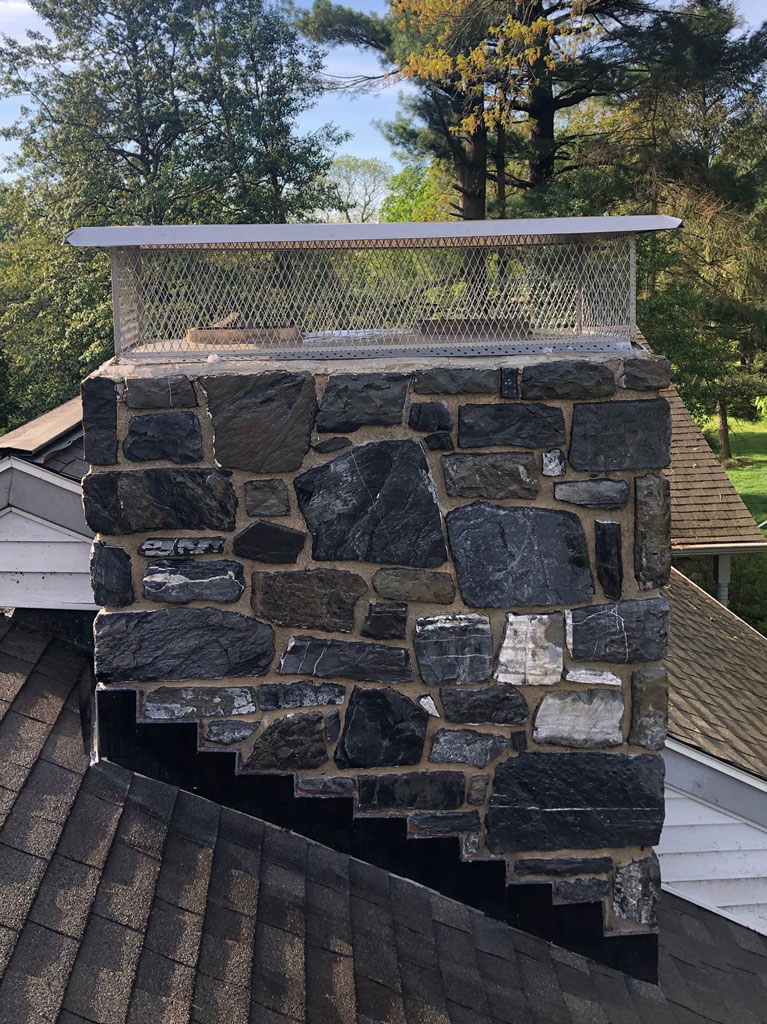Resources
Frequently Asked Questions
What should I do if my chimney is leaking?
If you notice water dripping into your firebox, stains on your ceiling near the fireplace, or streaks down the chimney, it’s crucial to act quickly. Moisture is one of your chimney’s worst enemies, causing hidden damage that worsens over time. Leaks can lead to cracked bricks, deteriorating mortar, and costly structural repairs.
Roofers often miss chimney-specific issues because chimneys require specialized knowledge. Our certified team can inspect your chimney, locate the source of the leak, and provide effective repairs to protect your home. Contact us as soon as possible if you suspect a leak.
How often should my chimney be cleaned?
The Chimney Safety Institute of America recommends a yearly inspection of your chimney and connected appliance. During your appointment, our certified team will determine if a sweep is needed based on your fuel type and any combustion deposits found. Annual inspections are crucial to ensure safe operation and prevent costly repairs.
Do I need to sweep if I burn oil?
Yes. Oil chimneys should be swept every three years. The sulfuric acid produced by oil combustion corrodes masonry linings, eventually causing internal collapse or dangerous clogs that can lead to carbon monoxide issues in your home. Regular sweeping protects your chimney and your family.
When is the best time of year to sweep my chimney?
While fall is the busiest season for sweeps, we recommend scheduling in the spring. Sweeping after winter removes creosote buildup and prevents summer odors caused by heat and humidity. Spring appointments also allow plenty of time for any repairs before the next burn season — often saving time and money.
Do I need a stainless steel liner if my chimney is cracked?
Yes. Cracked flue tiles indicate that your chimney has done its job protecting your home, but its safety is now compromised. Stainless steel liners offer a durable solution with a lifetime warranty and can be installed in most chimneys to restore safe operation.
Do I need a chimney cap?
Absolutely. Chimney caps keep out rain, animals, and debris, protecting against water damage and preventing downdrafts. We recommend stainless steel caps for their longevity and performance in harsh weather conditions.
What is a chimney crown?
The crown is the masonry top of your chimney, designed to shed rainwater away from the structure. If it cracks, water can seep into your chimney, deteriorating mortar joints and brickwork. Annual crown inspections help protect your chimney from costly water damage.
Get Ready for Your Appointment. Here’s What to Expect.
Best Time to Schedule
Spring and summer are ideal for non-emergency chimney repairs and maintenance. Fall and winter book fast, so plan ahead to keep your home safe and warm.
What to Do Before We Arrive
- Remove fragile items from and around your fireplace.
- Shut down wood or coal appliances at least 12 hours prior to our visit.
- Ensure 6 feet of clearance for our technicians to work safely and efficiently.
Payment Details
Payment is due upon completion the day of service. We accept cash, check, or credit card.
Protect What Matters Most With Certified Chimney Care.
Ensure your chimney is ready to keep your family warm, safe, and worry-free all year long. From routine sweeps to complex repairs and full restorations, our certified team has the skills and experience to handle it all. Trust Smokestack Masonry to protect your home with craftsmanship that lasts and service you can count on.



